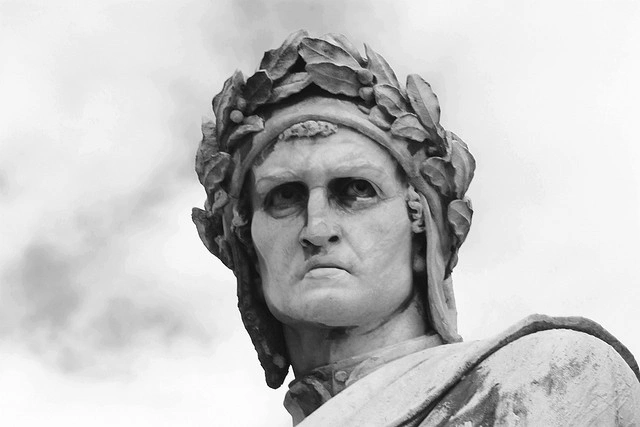Dante Alighieri - Biography.
Publié le 10/05/2013

Extrait du document

Dante Alighieri - Biography. Italian poet Birth May or June, 1265 Death September 13 or 14, 1321 Place of Florence (now Florence, Italy) Birth Known for Greatly influencing poetry and the arts, and summarizing political, scientific, and philosophical thought of the time in his epic masterpiece, The Divine Comedy Milestones 1274 Met, at the age of nine, Beatrice Portinari, who would provide the inspiration for some of his greatest work 1289 Was part of the Guelph army that triumphed over the Ghibellines at the Battle of Campaldino 1293? Composed La vita nuova (The New Life), which expresses, in prose and poetry, the nature and depth of his love for Beatrice 1295 Joined the guild of physicians and apothecaries, a move that helped him gain public office 1300 Was elected to the position of magistrate, one of six in the city of Florence 1302 Was exiled from Florence by a rival political faction and condemned to death if he returned. Dante never saw Florence again. 1304-1305 Wrote De Vulgari Eloquentia (Concerning the Common Speech), a theoretical discussion of the Italian language and a defense of its use in literature 1304-1307? Wrote 4 of the 14 intended volumes of the unfinished Convivio (The Banquet) 1310-1313? Wrote De Monarchia (On Monarchy), a political treatise expressing the necessity for a unified governmental authority 1307-1321 Wrote La commedia (The Comedy, later The Divine Comedy), an allegorical narrative of the author's journey through hell, purgatory, and paradise Did You Dante considered the Roman poet Virgil one of his most important influences, and cast Virgil as his guide through hell and purgatory in Know The Divine Comedy. Beatrice, Dante's great love and muse, is his guide through heaven. The Divine Comedy has been illustrated by Sandro Botticelli, Michelangelo, John Flaxman, William Blake, and Gustave Doré, and has been set to music by Peter Ilich Tchaikovsky, Giovanni Pacini, and Franz Liszt. The word 'divine' was first added to The Divine Comedy in a 1555 edition of the work; the original title was simply La commedia (The Comedy). Microsoft ® Encarta ® 2009. © 1993-2008 Microsoft Corporation. All rights reserved.
Liens utiles
- DIVINE COMÉDIE (LA), La Divina Commedia, 1472. Dante Alighieri - résumé de l'œuvre
- MONARCHIE (DE LA), Dante Alighieri - résumé de l'oeuvre
- BANQUET (LE), Dante Alighieri, 1265-1321 (résumé)
- QUESTION DE L’EAU ET DE LA TERRE de Dante Alighieri
- Dante Alighieri: Die göttliche Komödie (Sprache & Litteratur).
